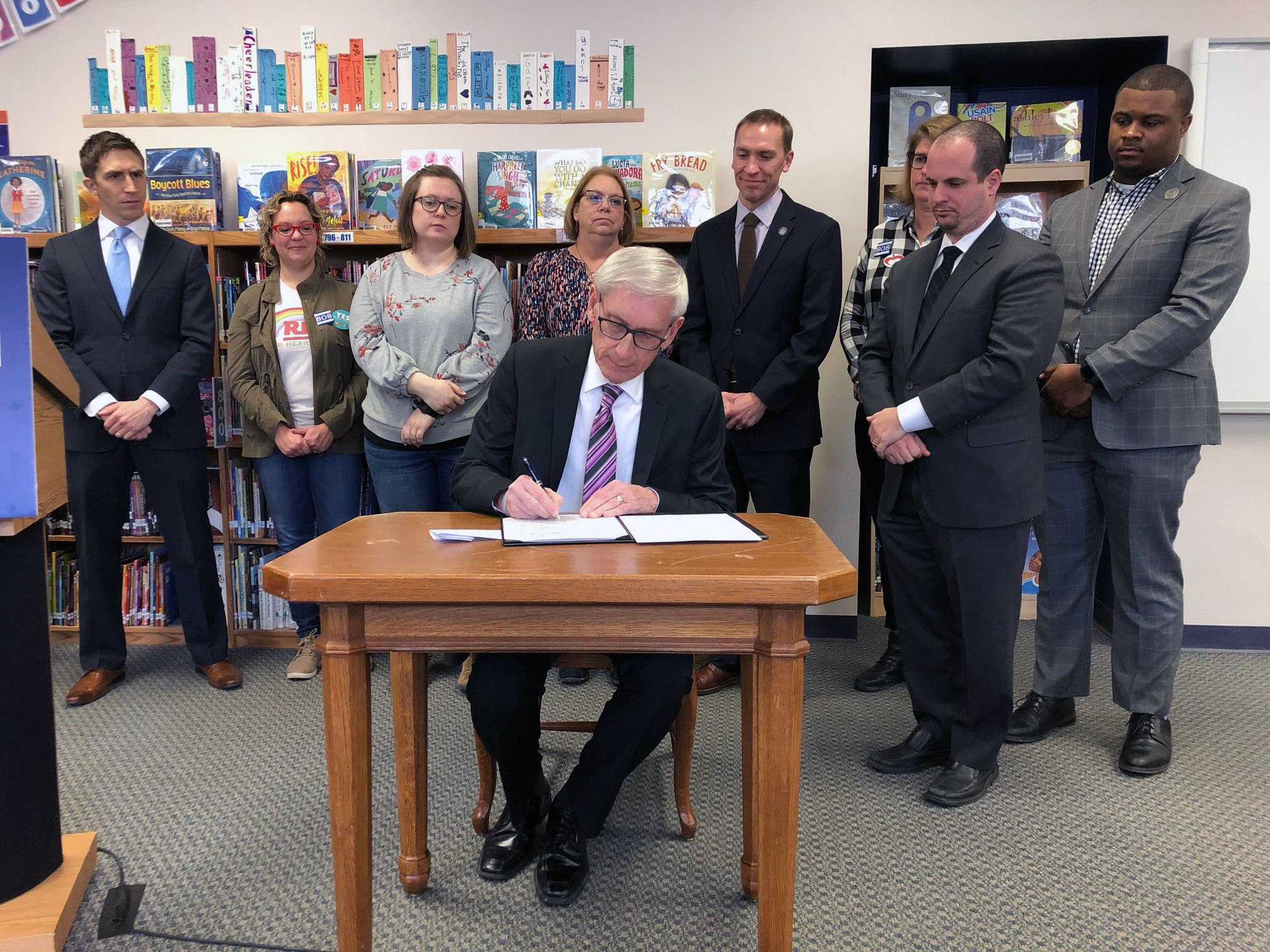Wisconsin libraries are toughening up on overdue items. A new bill under consideration at the state Capitol would allow libraries to use collection agencies and the police to get overdue books back on the shelves.
Heather Johnson is a librarian in River Falls. This past week, she sent out letters to 298 people with overdue books.
“Of those 298 patrons, they have over 1,000 items that are currently in the billed status. Just the billed items alone are over $10,000,” Johnson said.
Stay informed on the latest news
Sign up for WPR’s email newsletter.
While a letter from a librarian may not be intimidating, Johnson said she thinks mail from a collection agency or a police department might be more effective.
The legislation would allow all of the state’s libraries to use collection agencies. The police would step in if the overdue items are valued at $50 or more.
Kathy Klager, director of the Pauline Haass Public Library in Sussex, said the bill would bridge together two statutes.
“One that really limits what public libraries can share in terms of patron information with a third party,” Klager said. “There’s another statute that says taking library materials and not returning them is theft.”
Under the bill, only a limited amount of patron information would be disclosed to collection companies such as name, address and fine amount.
Currently, Klager said, city attorneys and municipal attorneys across the state advise libraries in different ways.
“Some can use collection agencies, some of us can only use police, some can’t do anything. There was simply no bite behind any kind of retrieval efforts,” she said.
The Madison Public Library system began using a collection agency 11 years ago; since then, they’ve retrieved more than a million dollars worth of overdue items.
“They estimate that’s maybe 30,000 items they would have had to purchase,” Klager said.
Other cities around the country have similar laws in effect, including Columbus, Ohio, where libraries are permitted to use the city’s Police Department for help.
Wisconsin Public Radio, © Copyright 2025, Board of Regents of the University of Wisconsin System and Wisconsin Educational Communications Board.





